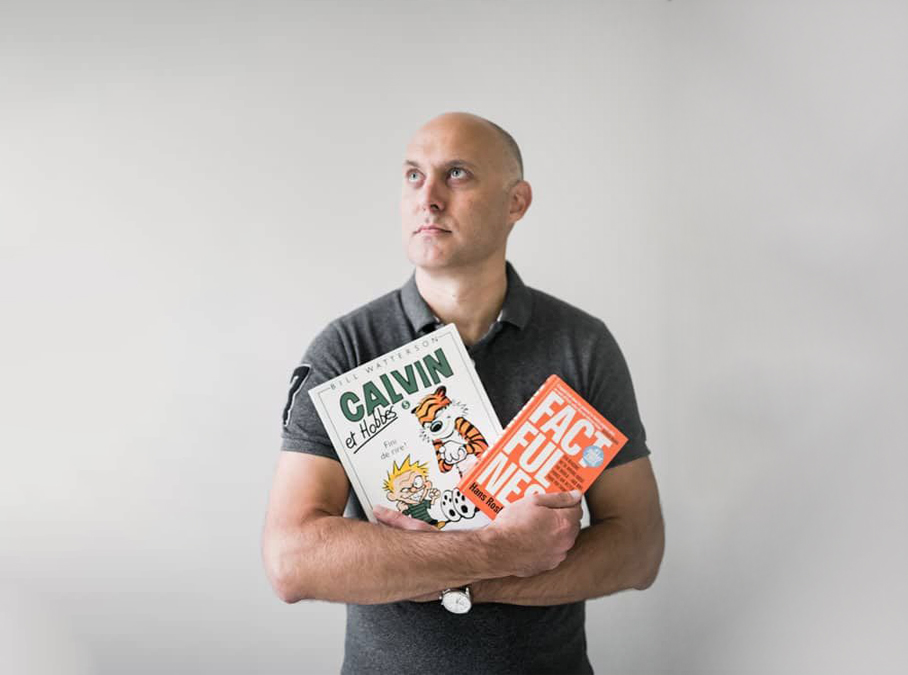- Can you share with us Yuvo Health’s founding story?
Yuvo Health’s founding team is composed of 100% people who identify as BIPOC. I mention that because each of us has experienced, first-hand, the lack of equity in our healthcare system. And it’s driven all of us to push for better.
My family moved from the Philippines when I was three. We moved around quite a bit—wherever my parents could find work—and I saw how so many doors were closed to them. Most formative for me was that we lacked health insurance for most of my childhood and Community Health Centers (CHCs) were my primary care providers. That is why I care so deeply about them. Without CHCs, I don’t know what options I would have had for care, except to go to the emergency room. This experience led me to work in healthcare, and more specifically, to support the amazing, yet historically disenfranchised communities that I’ve been a part of.
After working for several companies, honing my experience in value-based care (VBC), I realized two things: value-based care can and will revolutionize how care is delivered in America, and it should support everyone, not just large health systems and health plans. That’s when I started talking with my co-founders about Yuvo Health.
We recognized community health centers as the drivers of better health in under-resourced communities—communities many of us came from. CHCs deserve credit under value-based care, but they were not getting it. So instead of continuing to be frustrated by the lack of support for CHCs, we decided to do something about it. Thus, Yuvo Health was born. And now, we have supported almost a dozen Federally Qualified Health Centers (FQHCs), across two states who serve around 200,000 lives. Through this work, we’re able to give these CHCs access to VBC revenue and resources that they will use to increase capacity and provide care to more people in their communities.
- For those not familiar with Community Health Centers (CHCs), describe how those fit in the health care landscape and their importance.
Community health centers are such a critical piece of the healthcare landscape. They are non-profit organizations that provide healthcare services to underserved communities and they have a huge footprint. There are 1,400 CHCs in the United States that together serve more than 31 million people, who are mostly on Medicaid or are underinsured or uninsured. They serve 11% of children in the U.S. and 33% of all people living in poverty.
Many people aren’t aware of the breadth of services CHCs provide. In addition to primary care, CHCs are often the only point of access to dental care, vision services, chronic disease care and behavioral health services.
Plus, it’s estimated that by providing more cost-effective care, CHCs save $24 billion in healthcare spending. So as the focus of healthcare transformation is on reducing spending while improving access to care and overall quality, CHCs present a huge opportunity to accomplish that.
- Value-based care is a new frontier in healthcare. What are the challenges you see standing in the way of broader adoption?
The biggest challenge is that it isn’t easy. Data analytics, risk adjustment, coding, care coordination and patient planning are all crucial to success in value-based contracting and they all require dedicated resources and likely new technology.
Another challenge is that making the switch to value-based care involves financial risk. Smaller practices, in particular, are hesitant to take it on because they often don’t have the human or capital resources required. But even if CHCs had the resources to do this, they are the only provider group that is regulatorily prohibited from taking on financial risk.
And we can’t overlook the fact that change of any kind is hard. Primary care practices are stretched thin. They’re overworked. So, even with the potential for a more balanced workload and sustainable revenue in the future, shifting operations now can feel like a heavy lift and one they don’t have the bandwidth for.
- How does Yuvo Health best help its partners in unlocking the potential of value-based care?
Some systemic and regulatory barriers prevent community health centers from entering into the most beneficial contracts—specifically, contracts that involve risk. Yuvo Health unlocks those contracting opportunities by assuming that risk for CHCs. This allows CHCs to participate in contracts where the potential for return is so much greater than it is in contracts that they could pursue on their own.
We also increase the bargaining power of any individual health center, resulting in more favorable terms for them. Because we focus exclusively on CHCs, we understand the unique challenges they face and can advocate for fair and equitable contracts.
Then, we work with our partners to help them be successful in these contracts. Our team of population health and quality improvement experts become advisors and go-to resources on everything from helping to increase the number of people who come in for their annual wellness visit to providing training on accurate coding and gap closure documentation.
- In what ways do you see AI potentially impacting care delivery the most?
There are a few ways that stand out:
The first way is reducing the administrative burden. AI copilots integrated into Electronic Health Records (EHRs) can streamline data management, improve efficiency, and reduce errors. This allows the practice to keep its focus on providing excellent care and reduces time spent on things like referrals, claims management, and even risk stratification and patient outreach.
AI also has the potential to lead to more personalized care with more accurate diagnostic capabilities by analyzing large data sets instantaneously. This puts so much more information into the hands of the provider when considering treatments and prevention for each patient.
- If you could change one thing about the US healthcare system, what would it be?
Ensure equitable access to healthcare regardless of where you live, your race, your insurance status, etc.
To get there, we have to start by ensuring equitable funding for all healthcare providers. That’s why we’re so passionate about empowering community health centers. And, we have to acknowledge the institutional racism and classism that exists in our society, not just in healthcare. We can’t ignore how something like food insecurity or a lack of reliable transportation impacts a person’s healthcare.
There also has to be a realignment of incentives, to prioritize keeping people healthy rather than treating them when they are sick.
- Professionally, what are you the most proud of?
We achieved shared savings for multiple community health centers in the first year of our value-based contracting program. It’s a huge success, not only in delivering revenue to the health centers, but also in showing other contractors that partnering with CHCs is a smart investment.
What makes me particularly proud of this achievement is that it reflects the amazing work of so many: the talented team of diverse and caring individuals we have built at Yuvo Health and the health centers who placed their trust in us from the start. I’m proud of my role in cultivating and leading this group to create real, lasting change.
- As a first-time founder, what’s something you know now that you wished you had known when you got started?
This may be a function of the unique dynamics of the venture capital market right now, but I wish I had known that I would never stop raising capital—that it is not a transactional process. I’m building long-term relationships with potential and current investors, instilling and maintaining their belief in our organization, and keeping them engaged throughout our growth journey. It is time-consuming, but it is so important and so worth it.
- How have your investors like AV8 been most helpful to you?
Our investor partners at AV8 have been fantastic thought partners to us. Ruchita serves as a board observer but continues to punch well above her weight. She’s always available for honest counsel and has made numerous connections for us with subject matter experts, talent, funders, and customers/partners.
- What have you recently read or watched (books, TV, movies, etc) that others should know about?
The Founder’s Mentality: How to Overcome the Predictable Crises of Growth by Chris Zook and James Allen is an oldie, but a goodie that I’ve now re-read as a founder. I highly recommend it.
The main message is what they call the paradox of growth—when companies get bigger, they add complexity and bureaucracy. Yet this complexity and bureaucracy kills further growth. Though I’ve always appreciated this perspective, it didn’t hit me as hard until now, since I have founded Yuvo Health and led its growth.


0 Comments